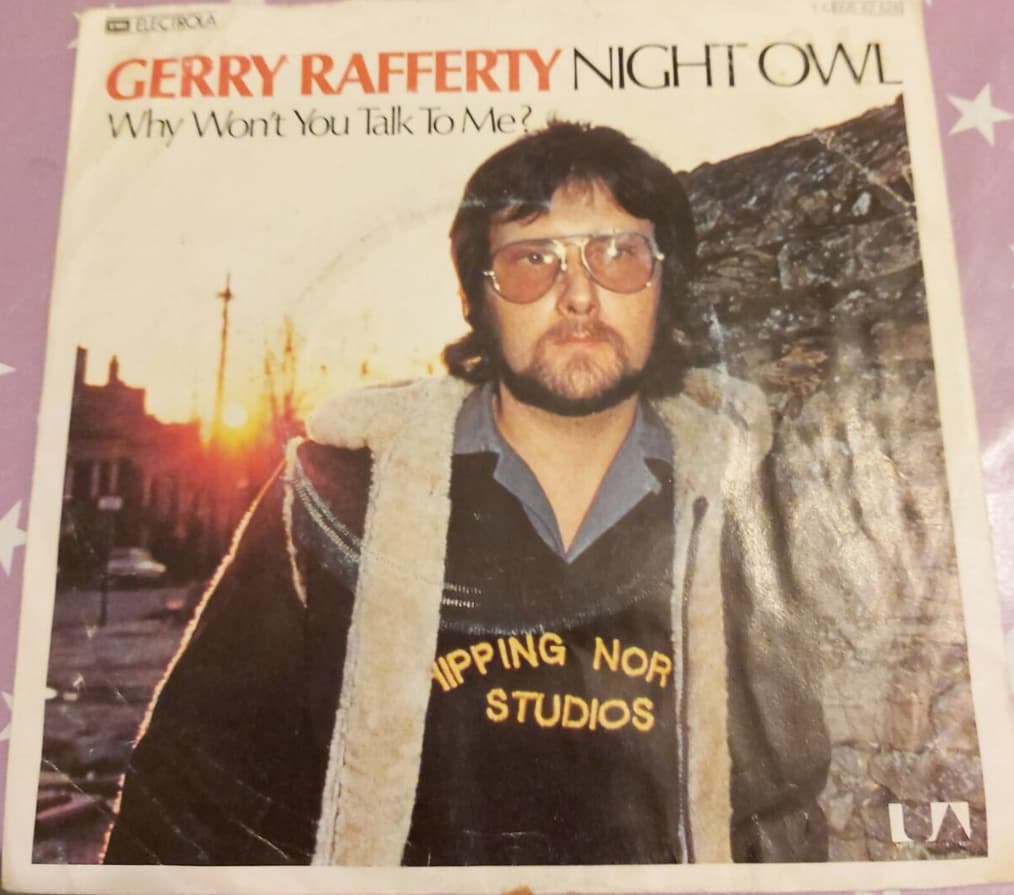
“Night Owl”: A Nocturnal Anthem from Gerry Rafferty
Gerry Rafferty, the Scottish singer-songwriter renowned for his masterful storytelling and smooth vocals, crafted another unforgettable tune with “Night Owl.” This track, the second on his 1979 album of the same name, captures the essence of Rafferty’s unique blend of folk, rock, and pop, further solidifying his status as a music legend. Known for its haunting Lyricon solo, played by none other than Raphael Ravenscroft—the saxophonist famous for his work on Rafferty’s hit “Baker Street”—“Night Owl” showcases Rafferty’s ability to weave intricate melodies with profound lyrical content.
Upon its release, the edited version of “Night Owl” climbed the charts to reach the top five in the UK Singles Chart, marking it as one of Rafferty’s significant solo accomplishments alongside “Baker Street.” Despite its success in the UK, “Night Owl” was never released as a single in North America. Instead, American audiences received “Days Gone Down” as the leading track from the same album. This decision came at a time when Rafferty’s popularity in the US was soaring, following the massive success of his album “City to City” and its iconic single “Baker Street.”
“Night Owl” delves deep into themes of alcohol abuse and self-reflection, with Rafferty using his lyrical prowess to paint a vivid, albeit somber, portrait of an artist grappling with the numbing effects of alcohol. Described by Rafferty’s estate as a “memorable, top 30 melody with a pitiless self-portrait of an artist using alcohol to blur the edges of a world in which what is real, and valuable, is sometimes effusive,” the song resonates with listeners through its raw and honest depiction of personal struggle.
The autobiographical elements in “Night Owl” are delivered in the third person, providing a sense of detachment that allows Rafferty to reflect on his experiences with a critical eye. This narrative choice adds depth to the song, inviting listeners to explore the complexities of addiction and the often-blurred line between reality and illusion.
The B-side of the original “Night Owl” single, “Why Won’t You Talk To Me,” complements the introspective nature of the title track, further showcasing Rafferty’s talent for creating emotionally charged music. Together, these songs offer a glimpse into the mind of an artist who uses his craft to navigate the turbulent waters of his inner world.
“Night Owl” stands as a testament to Gerry Rafferty’s enduring legacy, a song that not only captures the zeitgeist of its time but also continues to resonate with new generations of listeners. Its haunting melody, poignant lyrics, and masterful instrumentation make it a timeless piece, cementing Rafferty’s place in the annals of music history.